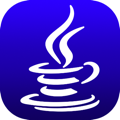Java SE 7 Update 6 hands OS X support to Oracle
 A Java Runtime Environment for Mac OS X and a free, but not open source, Linux ARM v6/v7 JDK are the highlights of Oracle's release of Java SE 7 Update 6. The process of moving the responsibility for keeping Java on Mac OS X up to date from Apple to Oracle has been completed with this release. The new release brings a Java Runtime Environment (JRE) to the Apple platform that is supported by Java's owners, Oracle. The Mac OS X JRE will also support automatic updating and will in future be updated at the same time as the Windows version of Java. As well as the JRE, Java SE 7 Update 6 also has final versions of JavaFX 2.2 rich client platform and JavaFX Scene Builder for Mac OS X.
A Java Runtime Environment for Mac OS X and a free, but not open source, Linux ARM v6/v7 JDK are the highlights of Oracle's release of Java SE 7 Update 6. The process of moving the responsibility for keeping Java on Mac OS X up to date from Apple to Oracle has been completed with this release. The new release brings a Java Runtime Environment (JRE) to the Apple platform that is supported by Java's owners, Oracle. The Mac OS X JRE will also support automatic updating and will in future be updated at the same time as the Windows version of Java. As well as the JRE, Java SE 7 Update 6 also has final versions of JavaFX 2.2 rich client platform and JavaFX Scene Builder for Mac OS X.
Earlier this year, an estimated half a million users of Mac OS X found themselves infected with Flashback, malware that infiltrates systems using a vulnerability in Java that had already been patched on other platforms. Apple's slow updating of Java had been a cause for concern for some time, but the Flashback incident brought it to the fore. After taking action to halt Flashback, Apple worked with Oracle to move support for Java to Oracle, which already maintains the Java software for Windows, Linux and some Unix systems.
In April, Java SE 7 Update 4 arrived from Oracle with support for Mac OS X Lion and with the Java Development Kit (JDK), allowing users to create and run Java 7 based applications, but the switching of the Java Runtime Environment to Oracle control was held back as the company worked on decoupling the Java and OS update cycles. The new JRE for Mac OS X is available from oracle.java.com and is due to be available, in a week, from java.com (which is currently still telling Apple users to use Software Update to get the latest Java).
Linux on ARM v6 and v7 systems are now also supported by a new JDK from Oracle as part of Java SE 7 update 6. This has been released to support the "emerging micro-server ARM market" and development systems such as the Raspberry Pi. Java's licensing allows free use of Java on general purpose devices, but as Henrik Stahl, Senior Director of Product Management, says in a blog post, if the device is embedded in say an industrial controller or kiosk appliance, Oracle would expect a commercial licence to be obtained. The port itself is a 32-bit binary for ARMv6 and v7 but only works with the softfloat ABI; this means that it will not work with Raspbian which uses the hardfloat ABI, though they do plan to support both that and JavaFX in a later version of the JDK.
Oracle are not releasing the ARM JDK port as part of the open source OpenJDK project and say they have no plans to open source this work. Stahl says that the free-of-charge ARM port is part of a "super-secret agenda" to "enable Java developers so that Java can continue to thrive and maybe sell some middleware on ARM servers down the line."
A security change in Update 6 means that Oracle has modified security dialogs for trusted signed and self-signed applications in a way that requires more user intervention to allow applications to run. On Windows systems, Oracle has include Access Bridge, which enables more Java applications to be visible to Windows accessibility tools.
Java SE 7 Update 6 is available as a JRE download for Windows, Mac OS X, Linux x86 and Solaris or as a JDK download for Windows, Mac OS X. Linux x86/ARM and Solaris. Release notes and the Oracle binary licence are also available to read along with other documentation.
(djwm)
![Kernel Log: Coming in 3.10 (Part 3) [--] Infrastructure](/imgs/43/1/0/4/2/6/7/2/comingin310_4_kicker-4977194bfb0de0d7.png)

![Kernel Log: Coming in 3.10 (Part 3) [--] Infrastructure](/imgs/43/1/0/4/2/3/2/3/comingin310_3_kicker-151cd7b9e9660f05.png)
















